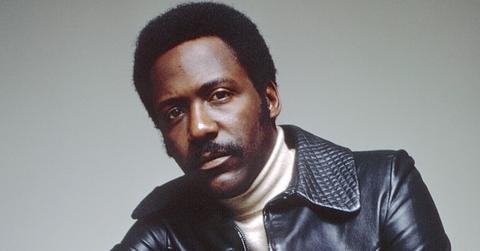
Icon – Richard Roundtree
Model, actor, and advocate Richard Roundtree was one of the original multi-hyphenates.
By Mercer SantosApril 15 2024, Published 11:30 a.m. ET
His professional career, which spanned six decades, impacted the lives of millions through iconic roles across entertainment and his outspoken support for male breast cancer awareness.
Born on July 9, 1942, in New Rochelle, N.Y., Roundtree attended Southern Illinois University on an athletic scholarship for his stellar football performance but later dropped out to pursue modeling. There, Roundtree modeled for the Ebony Fashion Fair and posed in print ads marketing for numerous brands, including Schlitz Malt Liquor and Johnson Products’ Duke hair products.
According to Hollywood Reporter, Roundtree eventually “heeded advice from Bill Cosby” and moved to New York City to pursue acting, landing at the Negro Ensemble Company, where he played numerous theatre roles.
Roundtree’s most iconic role came when he debuted as the titular “Shaft” in the 1971 film of the same name. He became one of the first Black action heroes to appear on the silver screen, predating other mainstream hits such as “Blade” in 1998 and “Beverly Hills Cop” in 1984. Considered a blaxploitation film due to its alleged perpetuation of black stereotypes, the film went on to make over $12 million at the box office on a budget of $500,000.
“I used to look at it as a double-edged sword,” Roundtree told WBUR-FM in 2019, “But I’ve had so many people from all over the country—and all over the world actually—come up and say what that film meant to them back in ’71. It’s heavy. And I’m appreciative of people speaking to me and sharing that with me.”
He went on to reprise his role in the four subsequent sequels. “Shaft” was responsible for sparking the creation of numerous other films that featured black leads. To many, Roundtree portrayal of the character allowed for Black men and children to have a new role model to look up to—one who was outwardly confident and headstrong, unlike previous subservient on-screen Black characters.
According to the National Film Preservation Board, “Shaft” was preserved in the Library of Congress meant to “ensure the survival, conservation and increased public availability of America’s film heritage.”
In 1993, Roundtree was diagnosed with breast cancer in his right breast. After undergoing a double mastectomy, according to the National Urban League, he made it his mission to raise awareness about breast cancer in men, hoping to rid stigmas surrounding the topic. In his older years, he spoke with advocacy groups and other health organizations.
He told ABC News in 2009, “Not talking about my cancer was really tough, and now that I talk about it all the time, it’s really become a backhanded blessing.” He went on to say that a flight attendant's husband received treatment only after seeing an article featuring Roundtree.
Throughout his career, Roundtree also appeared in David Fincher’s critically acclaimed mystery film “Seven” and the period drama film “Once Upon a Time… When We Were Colored.”
Roundtree’s most recent performance appeared in the comedy “Moving On” as the character, Ralph. According to Deadline, the upcoming film, “Thelma,” the directorial debut of Josh Margolin, will feature Roundtree’s final on-screen performance. The film premiered at the 2024 Sundance Film Festival in Salt Lake City, Utah.
He died of pancreatic cancer while at his Los Angeles home on Oct. 24, 2023 at the age of81. Roundtree is survived by his three daughters, Kelli, Nicole, and Taylor; and his sons, John James and Morgan.

